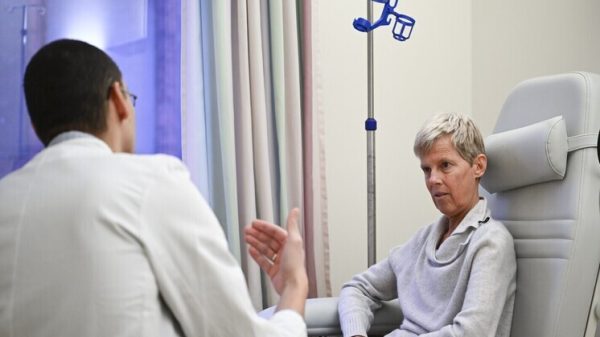
Legislators in Honduras are pushing a constitutional reform through Congress that would make it virtually impossible to legalise abortion in the country – now or in the future.
Argentina legalizing abortion will spur reform in Latin America, minister says
Read more
The measure, called a “shield against abortion” by its proponents, comes in response to the feminist “green wave” movement sweeping across Latin America that recently achieved its biggest victory yet with the legalisation of abortion in Argentina.
“It’s a shield to stop the green wave,” said Cristina Alvarado, a representative of the Women’s Movement for Peace. “In Honduras there is an absolute violation of the reproductive rights of women and girls.”
Honduras is one of four countries in Latin America that prohibits abortion under any circumstance, and the only one to also prohibit emergency contraceptives, even in the case of rape.
The new measure, which is likely to pass within the next week, would require at least three-quarters of Congress to vote in favour of modifying the country’s abortion law for any changes to be enacted, raising the vote threshold above what is normally necessary for constitutional reforms to a level that would be almost impossible to overcome.
It sets a precedent that activists fear could be replicated across the region to halt the advance of reproductive rights for women.
“[The legislators] want to shield against the possibility of future legislation that would decriminalise abortion,” said Alvarado.
In 2017, legislators voted on a reform that would have decriminalised abortion in the case of rape or incest, when the mother’s life is at risk and when the foetus could not survive outside the womb. But only eight of 128 legislators voted in favor.
“We live in an extremely conservative society,” said Beatriz Valle, a former legislator for the center-left Libre party who was one of those who voted in favor of decriminalisation. “It’s a matter of public health, but the people don’t want to see it that way.”
The constitutional reform would also exclude the possibility of a court ruling, such as Roe v Wade in the United States, or the passing of a new constitution, to overturn the prohibition.
Pro-choice activists say that the reform will not prevent abortions, but rather maintain the status quo in which many women – particularly those who cannot afford to simply fly to another country where the practice is legal – are obliged to seek out abortions in unsafe conditions.
“There have been cases where once you do the physical examination you find coins or even nails in the vaginal cavity,” said an OB/GYN at a local public hospital. He added that his hospital attends to roughly 150 miscarriages a month, many of whom are teenage girls who he suspects may have aborted.
Performing or undergoing an abortion in Honduras carries a penalty of three to six years in jail, but charges are rarely filed.
The confinement that came with the Covid-19 pandemic has only worsened conditions for women in the country, which suffers the highest rate of femicide in Latin America and endemic sexual violence.
Dominican Republic activists fear total abortion ban banishes women to the dark ages
Read more
“We closed 2020 with more than 100,000 calls to 911 from women suffering domestic violence,” said Alvarado. “Of those calls, only 2.5% resulted in criminal complaints.” Even fewer resulted in a conviction.
Meanwhile, the number of 10- to 14-year-old girls who gave birth in 2020 increased to more than 800 nationwide, an average of 16 a week, according to Alvarado, in a country with a population similar to that of London.
Despite the seemingly insurmountable opposition to progress on reproductive rights for women, feminist activists in Honduras find inspiration in the accomplishments achieved by their green wave counterparts across Latin America and are resolved to continue to fight.
“We are going to keep fighting for the right to decide,” said Alvarado. “I think that if there’s something that we can learn from the Argentinians it’s to go step-by-step. It took Argentina over 30 years.”






















































Свежие комментарии